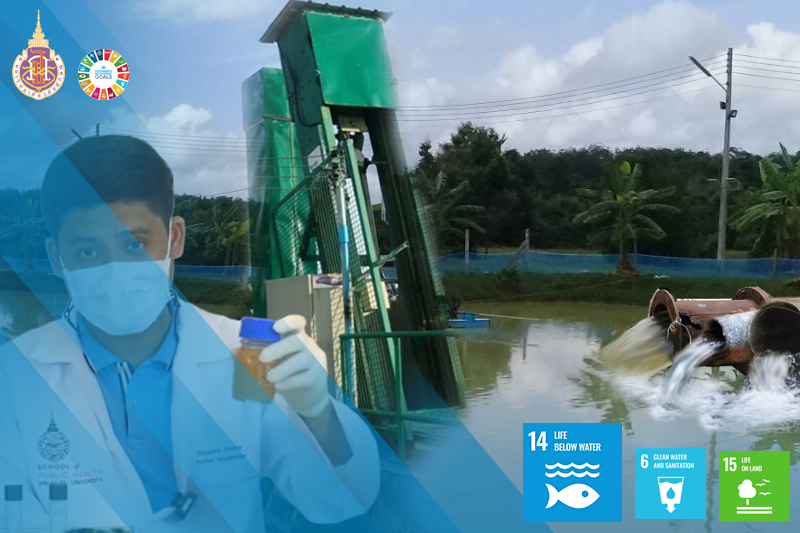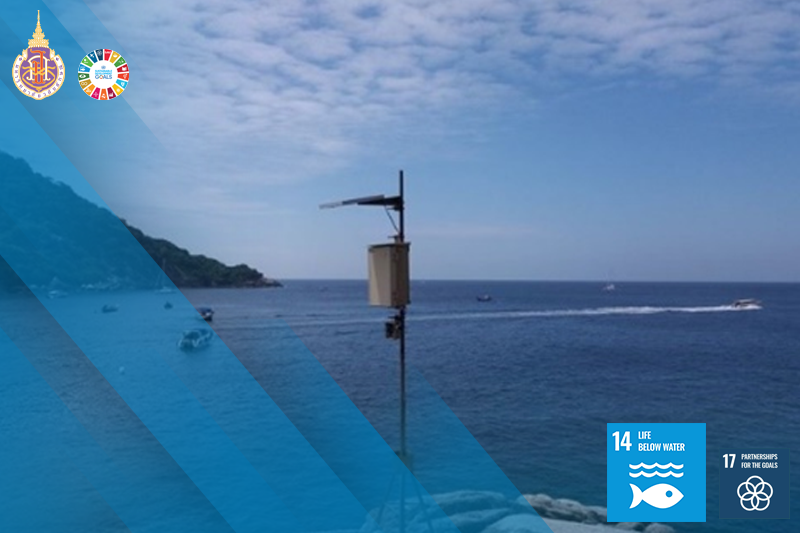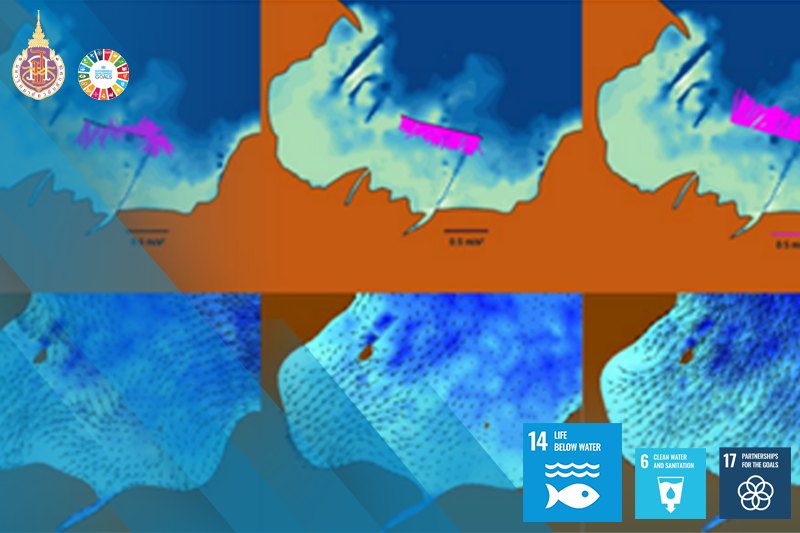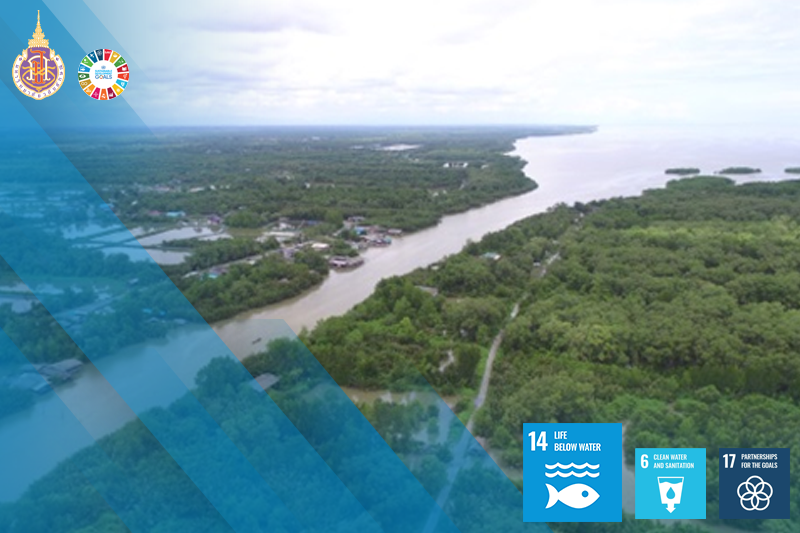Providing Free Access to WU's Knowledge, Skills, and Technology of Food Security for Local Farmers and Food Producers
Clinic Technology, in collaboration with the Ministry of Higher Education, Science, Research, and Innovation (MHESI), has embarked on a mission to establish itself as an academic and consultancy service center. This initiative seeks to bolster networks and foster cooperation among diverse organizations operating under the umbrella of MHESI. The project succeeded in the community’s sustainable economic, agriculture and livelihood development by utilizing science, technology, and innovation. Moreover, the Clinic Technology has 83 products by 51 experts from Walailak University, and it transfers 95 technologies to local farmers and food producers.
WU Clinic Technology has continued to operate the project; in the 2022, five significant benefits the Clinic Technology gains from organizing activities are:
1. Assisting the residents and communities with free of charge
2. Promoting cooperation between community networks of fieldwork
3. Honoring and gaining the trust of the communities and local authorities
4. Identifying the type of technology required in the communities so that the unit coordinates with relevant agencies for support in technology availability and community budget
5. Organizing long-term and short-term schemes or projects to promote the communities.

Furthermore, the communities involved in these initiatives receive advantages through academic and advisory services provided by The Clinic Technology. These activities contribute to the community’s development, and local residents in these communities gain exposure to science and technology through various communication channels. This helps them harness their potential and benefits society as a whole.
In the fiscal year 2022, Clinic Technology has put into action academic and advisory services aimed at addressing the technology gap in elevating the livelihoods of community members. These services were extended to housewife groups, farmers, and local residents through various means, including telephone consultations, the website, in-person meetings with Clinic Technology staff, walk-in visits to the Clinic Technology at Walailak University, fieldwork, and public relations efforts. Furthermore, Clinic Technology collaborated with both internal and external organizations to host exhibitions, offer advisory services, and facilitate the transfer of technology to the community.
A total of 83 individuals requested services across various technology aspects, including the use of microbial pesticides, health promotion among farmers through agricultural health sciences, and seafood product processing. Additionally, there were 128 service requests related to enhancing the health of agriculturists to boost production and economic development within the community. In total, there were 211 service requests. Clinic Technology conducted a satisfaction survey involving 83 participants, achieving a satisfaction rate of 93.20%. All participants were able to apply the knowledge gained from the service to their career development, resulting in a 100% achievement rate for academic and consultancy services.
In 2022, the cost of academic and consultancy services in science and technology is 737.68 baht per individual. As a result, this led to an overall cost reduction of 832,000 baht. It is 3.48 times of the total project investment. This is because the agricultural network receiving microbial pesticide technology services (microbial pesticide, Trichoderma harzianum, Metarhizium anisopliae, Beauveria bassiana, Trichoderma five plus) use in mangosteen plants to take care of and manage plant diseases and crop-damaging insects in 1,040,000 square meters.
To promote the health of farmers with health science, 45 farmers from the communities of Wang Ang and Sang Wiman (both communities have a significant elderly population) in 2022. The total cholesterol levels of the farmers reduced by 85% when compared to the results of cholesterol tests from the previous year.
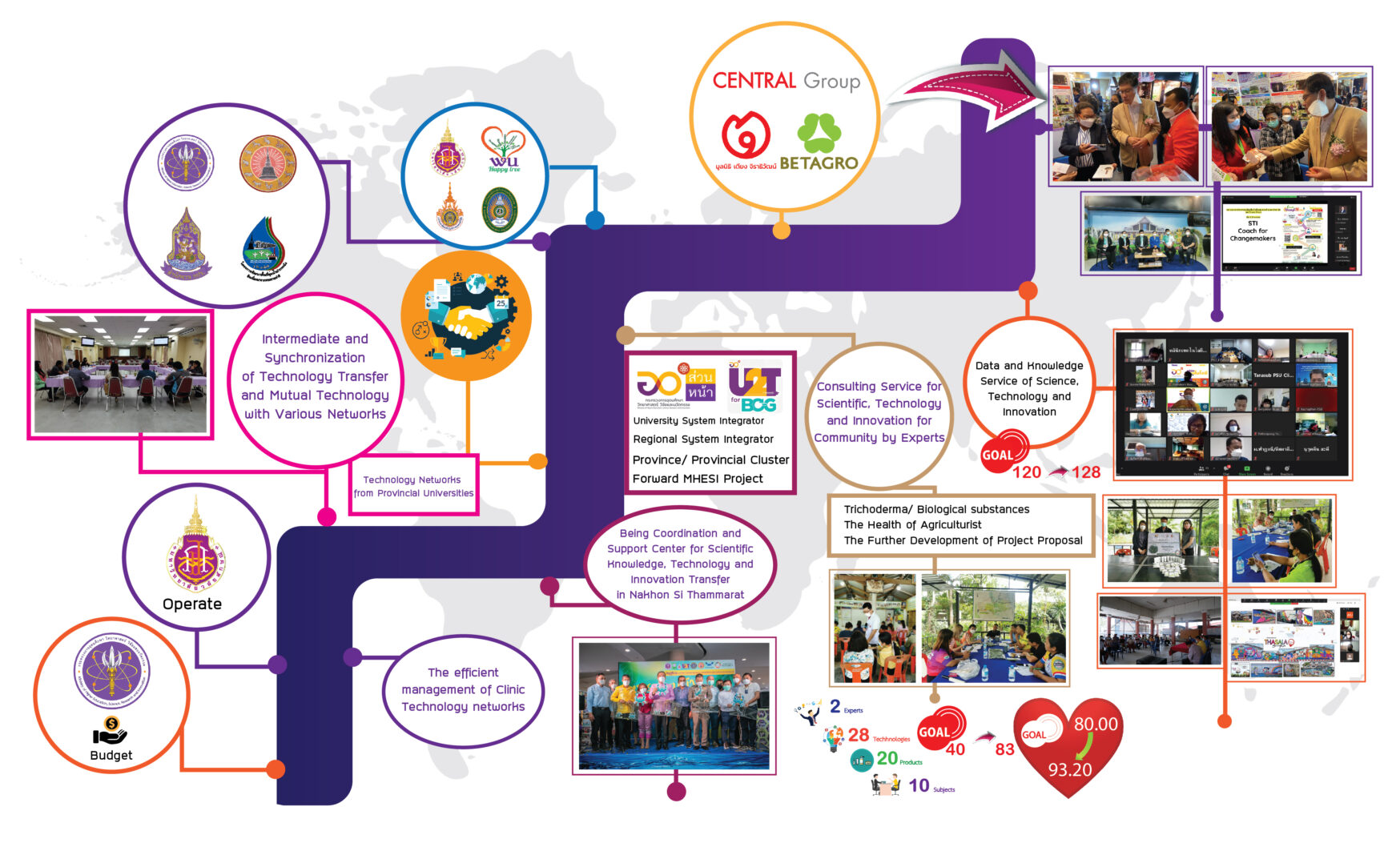
The Clinic Technology join in supporting microbial pesticide (microbial pesticide, Trichoderma harzianum, Metarhizium anisopliae, Beauveria bassiana, Trichoderma five plus) at Agricultural Biology Production and Services center (ABS) and Walaibiocontrol Co., Ltd. to provide services to farmers in the area and the nationwide network of farmers. In 2022, the ABS and Walaibiocontrol had provided services to more than 7,200 individuals across 77 provinces in Thailand. The service recipients across the country learned about this technology through the dissemination by Thai PBS Southern News Center.
Working with the continuous network of farmers at the WU Clinic Technology win the outstanding performance organization award for two consecutive years from the Office of the Permanent Secretary of the Ministry of Higher Education, Science, Research and Innovation.
Furthermore, the university also offers various resources and knowledge in areas such as food and plant, which are available for free to the general public, including local farmers and food producers to access on university knowledges.
For plant knowledge, the university also has a “project to grow safe vegetables in hydroponics” under the operation of the Agricultural Innovation Demonstration and Development Center in honor of His Majesty King Rama IX, which has been in operation since 2020. This is the main project to strengthen food safety and is open to local farmers and food producers to acquire knowledge and various technologies as follows:
-Water conservation in hydroponic systems
-Soil farming
-Growing plants in the NFT system
For food knowledge, Walailak University by the Development of Kimchi Products, Packaging and Marketing provides knowledge of added value to Kimchi products which the main ingredients are from the local farmers who grow vegetables, especially farmers within the area of the Pak Phanang Basin Development Administration and Coordination Center and the community enterprise group of Pak Phanang District and Hua Sai District, Nakhon Si Thammarat Province with a large number of productivity.
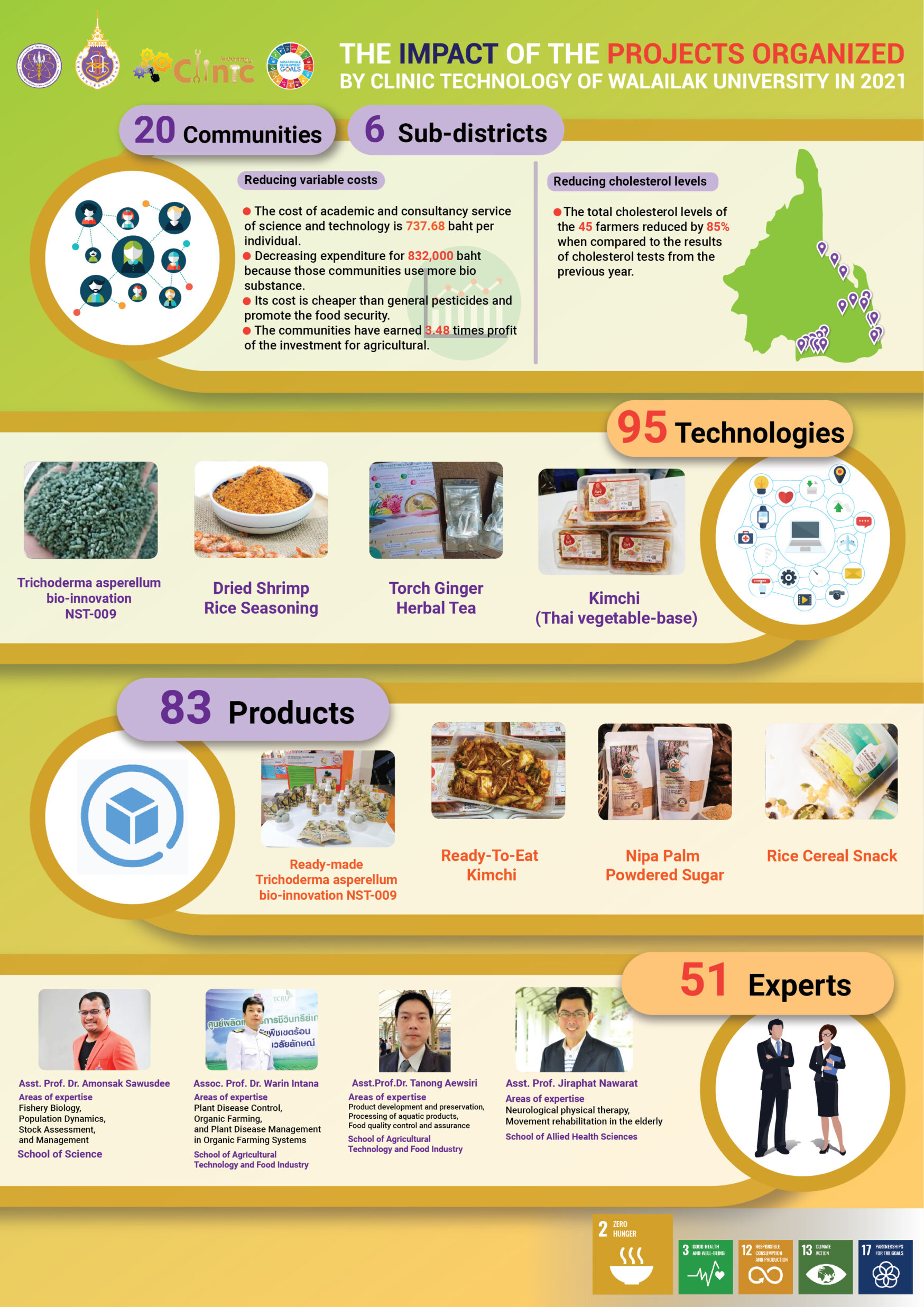
Related link:
http://www.clinictech.ops.go.th/online/cmo/product_detail.asp?tid=7514
http://www.clinictech.ops.go.th/online/cmo/product_detail.asp?tid=7513
http://www.clinictech.ops.go.th/online/cmo/product_detail.asp?tid=7511
http://www.clinictech.ops.go.th/online/cmo/product_detail.asp?tid=7505
http://www.clinictech.ops.go.th/online/cmo/product_detail.asp?tid=7508
http://www.clinictech.ops.go.th/online/cmo/techlist_detail.asp?tid=7535
http://www.clinictech.ops.go.th/online/cmo/techlist_detail.asp?tid=7522


